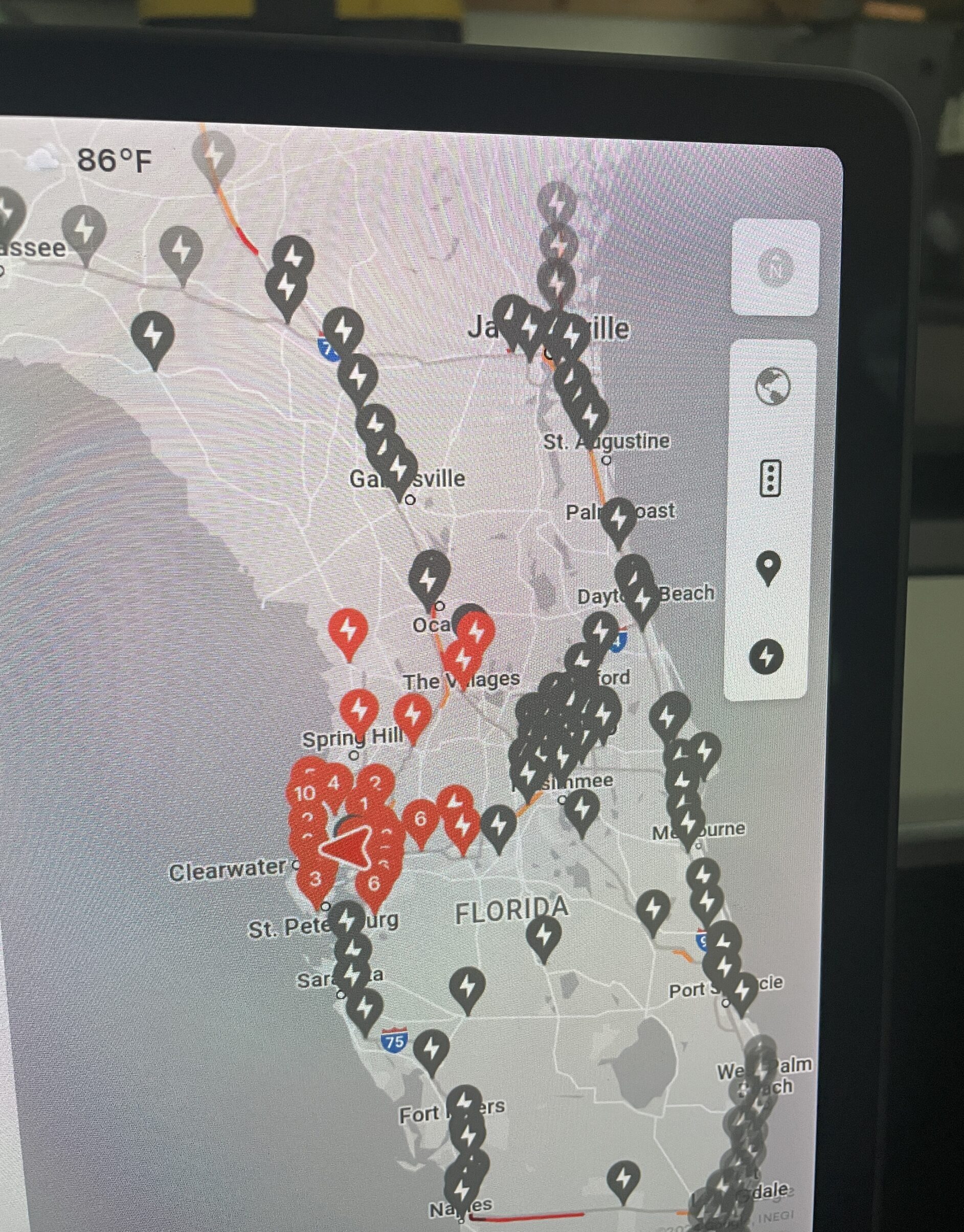
Sign up for daily news updates from CleanTechnica on email. Or follow us on Google News!
What do you think of what you’re presented with an image of the Toyota Prius hybrid? Like most people, your associations are probably connected with protecting nature and reducing resource depletion. You’re also somebody who recognizes that our climate has been altered by humans through fossil fuel use and their resulting emissions. You’ve always seen Toyota as a partner dedicated to lessening global warming. It’s been a mirage, subterfuge, an out-and-out lie. Actually, Toyota has a significant track record of funding climate deniers.
Climate deniers? Sorry, but it’s true. Toyota Motor Corporation (TMC) is opposed to the electric vehicle (EV) revolution. It has become the largest funder of US lawmakers who deny the existence of the climate crisis. The world’s largest automaker has been behind the scenes influencing US politics in a sustained attempt to hold EVs from mainstream adoption and to maintain its market share.
Watchdog group Public Citizen says that Toyota — after the 2024 election, with Toyota’s climate-denying allies entering power — “is poised to marshal an assault on climate policy. However, it is a risky strategy. Its failure to build EVs has left it vulnerable to an influx of competitors who have embraced the next generation of vehicles.”
Toyota holds great sway in Japan as the nation’s largest company, having revenue and a market cap about twice that of the closest runner-up. Public Citizen states that Toyota “holds the kind of cultural cache that can only be compared to General Motors in its heyday, which has given Toyota an immense amount of political power.”
A report from Public Citizen has disclosed how Toyota has donated substantially during the last three election cycles to climate denier candidates. “Driving Denial” outlines how Toyota has contributed to 207 climate deniers running for office. US House Speaker Mike Johnson (R-LA.) received $10,000, Rep. Jason Smith (R-MO) got $7,000, and others, including Rep. James Comer (R-KY), David Schweikert (R-AZ), and Cathy McMorris Rodgers (R-WA), received a total of $808,500 — all of whom deny or question the existence of climate change.
In a town hall, Johnson said, “The climate is changing, but the question is, is it being caused by natural cycles in the atmosphere over the span of the Earth’s history? Or is it changing because we drive SUVs? I don’t believe in the latter. I don’t think that’s the primary driver.” He has also led the effort to try to strip funding for green energy from the IRA.
What is Toyota’s rationale for quietly building a powerful US influence operation to weaken climate policy by supporting climate deniers?
- The company has lagged behind its competitors in making the needed transition to EVs.
- Toyota is also the only major automaker that has failed to set a target for 100% EVs.
- It is stagnant in its internal combustion engine (ICE)-powered hybrid technology.
- It bet on hydrogen-powered vehicles, which have failed in the marketplace.
- Toyota is vulnerable to its competitors, who have surpassed the major automaker in the buildout to next generation vehicles.
- The company has had difficulty reducing its carbon footprint, failing even to reduce its greenhouse gas emissions by 15% from 2018 to 2026.
- Instead of innovating, Toyota has funded the campaigns of climate-hostile lawmakers and paid lobbyists to squash inevitable EVs.
Between 2019 and 2023, Toyota spent over $31 million just on US federal lobbying. Toyota has deceptively marketed its gas-powered hybrids as EVs instead of investing in EVs.
Last year at this time, Toyota agreed with Panasonic Holdings Corporation to make Primearth EV Energy Co., Ltd. a wholly owned subsidiary in order to strengthen its capabilities in mass-producing automotive batteries, with the acquisition scheduled to take place in late March. More competitive batteries would enhance the appeal of Toyota’s current hybrid offerings and contribute to achieving carbon neutrality through a multi-pathway approach.
While ramping up its lobbying efforts for climate deniers, Toyota has invested in carbon-intensive hydrogen-powered vehicles such as the Mirai, a hydrogen fuel cell vehicle (HFCV) introduced in 2014. The Mirai has sold fewer than 25,000 units and has failed to provide consumers with the infrastructure needed for HFCVs, with just 60 hydrogen refueling stations in the US and Canada — leading to a class action lawsuit against the automaker.
Ahead of the Paris Olympics, which Toyota sponsored, 120 scientists, engineers, and academics wrote an open letter to organizers calling on them to drop the Mirai as the official vehicle of the games. That is because over 99% of hydrogen is made with fossil fuels and hydrogen production emits about as much annually as all global aviation, making hydrogen vehicles far dirtier than EVs. Like Toyota’s broader greenwashing strategy, the Mirai presents a veneer of green energy but is actually just a mirage.
In a counterattack on November 8, 2024, during a virtual press conference, Jack Hollis, the chief operating officer for Toyota Motor North America, told reporters the EV mandates that are set to start next year in California and other states are “impossible” to meet. If they’re not changed, he said, they will lead to less customer choice in several states.
Just five days after that, the Japanese news outlet Nikkei published a story detailing Japanese automakers’ plans to ramp up lobbying in the second Trump administration. In late November, Hollis wrote a Wall Street Journal op-ed entitled “Trump Can Get EVs Back on Track,” calling on the new administration to dismantle the Biden-era policies that encourage automakers to reduce emissions. It complained that “unrealistic regulations favor one carbon-reducing option over, and at the expense of, all others.” On Christmas Eve, Toyota announced it was donating $1 million to Trump’s inauguration and his coterie of climate deniers.
Meanwhile, a coalition of automakers sent a letter to once-and-future President Donald J. Trump with the request to continue the Biden-Harris administration’s EV policies. The Alliance for Automotive Innovation, composed of 42 automakers including Ford and General Motors, said they are in favor of existing EV tax incentives and emissions regulations. They argue that the auto industry can only be successful if it is allowed stability and predictability in auto-related emissions standards. Automakers already are on a path to transportation electrification, with investments of billions of dollars dedicated to EV research and development.
Investors appear to expect the EV market to continue its rapid growth. The S-curve is a well-established phenomenon where a successful new technology reaches a certain catalytic tipping point (typically 5–10% market share) and then rapidly reaches a high market share (i.e., 50%+) within just a couple more years once past this tipping point.
There is a self-reinforcing cycle where the technology becomes more cost-effective as it becomes more prevalent. That is certainly the case for EV batteries, which fell by 20% in cost in 2024 alone. Sorry, Toyota. You bet on the wrong horseless carriage.
Featured image: “Steel Wool Prius” by wgreenephoto is licensed under CC BY 2.0.
Chip in a few dollars a month to help support independent cleantech coverage that helps to accelerate the cleantech revolution!
Have a tip for CleanTechnica? Want to advertise? Want to suggest a guest for our CleanTech Talk podcast? Contact us here.
Sign up for our daily newsletter for 15 new cleantech stories a day. Or sign up for our weekly one if daily is too frequent.
CleanTechnica uses affiliate links. See our policy here.
CleanTechnica’s Comment Policy




